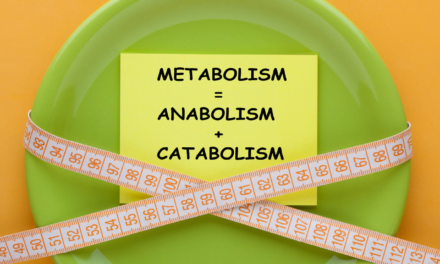Anabolic steroids are synthetic substances that mimic the effects of testosterone in the body. These compounds are used by athletes, bodybuilders, and fitness enthusiasts to enhance performance, build muscle mass, and improve physical appearance. Unfortunately, using anabolic steroids has risks, especially to the liver. This article will discuss how anabolic steroids work, their effects on the liver, types of liver damage caused by anabolic steroids, factors that influence liver damage, symptoms of liver damage, diagnosis, treatment, and prevention of anabolic steroid-induced liver damage.
How Anabolic Steroids Work
Anabolic steroids work by increasing protein synthesis in muscle cells, which leads to an increase in muscle mass and strength. These compounds also reduce the time it takes muscles to recover from intense workouts, allowing athletes to train more frequently and with higher intensity. Anabolic steroids can be taken orally or injected, and they are typically used in cycles of several weeks to several months.
Effects of Anabolic Steroids on the Liver
The liver is responsible for metabolizing anabolic steroids, and it can be adversely affected by these compounds. Anabolic steroids can cause liver damage by increasing the production of enzymes that break down liver cells, leading to inflammation and scarring of the liver. In severe cases, anabolic steroid use can cause liver failure, which can be life-threatening.
Liver Damage Caused by Anabolic Steroids in the UK
The use of anabolic steroids in the United Kingdom has been a concern due to their potential to cause liver damage. Anabolic steroids, which are synthetic substances that mimic the effects of testosterone, are popular among athletes, bodybuilders, and fitness enthusiasts in the UK. However, the misuse and abuse of these substances can lead to serious liver problems. Understanding the effects, types of damage, and preventive measures related to anabolic steroid-induced liver damage is crucial for individuals in the UK who may be considering or already using these substances.
Metabolism of Anabolic Steroids in the Liver
The liver metabolizes anabolic steroids by breaking them down into smaller molecules that can be excreted from the body. The metabolites of anabolic steroids can be detected in urine and blood tests, which see their use in athletes.
Types of Liver Damage Caused by Anabolic Steroids
Hepatotoxicity
Hepatotoxicity is when a chemical substance, such as anabolic steroids, damages the liver. Symptoms of hepatotoxicity include jaundice, abdominal pain, and nausea and vomiting.
Cholestasis
Cholestasis is a condition in which bile flow from the liver is disrupted, leading to a buildup of bile in the liver. Symptoms of cholestasis include itching, fatigue, and dark urine.
Peliosis Hepatis
Peliosis hepatis is a rare condition in which blood-filled cysts form in the liver. Peliosis hepatis is associated with anabolic steroids and can lead to liver failure.
Factors that Influence Liver Damage
Dosage
The higher the dosage of anabolic steroids, the greater the risk of liver damage. It is essential to use anabolic steroids at the lowest effective dose and for the shortest possible duration.
Duration of use
The more prolonged anabolic steroids are used, the greater the risk of liver damage. Limiting the use of anabolic steroids to cycles of several weeks to several months is essential.
Frequency of use
The more frequently anabolic steroids are used, the greater the risk of liver damage. It is essential to allow the liver time to recover between cycles of anabolic steroid use.
Route of administration
Injectable anabolic steroids are more likely to cause liver damage than oral steroids. Injectable anabolic steroids bypass the liver and are metabolized in the bloodstream, which can lead to liver damage.
Symptoms of Liver Damage
Jaundice
Jaundice is a condition in which the skin and whites of the eyes turn yellow. Jaundice is a symptom of liver damage caused by a buildup of bilirubin in the blood.
Abdominal pain
Abdominal pain is a common symptom of liver damage. The pain may be dull or sharp and accompanied by nausea and vomiting.
Nausea and vomiting
Nausea and vomiting are common symptoms of liver damage. Dark urine is a symptom of liver damage caused by the presence of bilirubin in the urine. Bilirubin is a waste product normally excreted in the urine, but when the liver is damaged, it can build up in the bloodstream and be excreted in the urine.
Diagnosis of Anabolic Steroid-Induced Liver Damage
Liver function tests
Liver function tests assess liver damage, such as alanine aminotransferase (ALT) and aspartate aminotransferase (AST). Elevated levels of these enzymes indicate liver damage.
Imaging studies
Imaging studies, such as ultrasound, CT scan, or MRI, can assess liver damage and detect abnormalities.
Liver biopsy
A liver biopsy involves the removal of a small sample of liver tissue for examination under a microscope. This procedure can help diagnose liver damage and determine the extent of the damage.
Treatment of Anabolic Steroid-Induced Liver Damage
Discontinuation of anabolic steroids
The first step in treating anabolic steroid-induced liver damage is discontinuing anabolic steroids. This allows the liver to begin to heal and can prevent further damage.
Supportive therapy
Supportive therapy, such as hydration and rest, can help the liver recover from damage. In severe cases, hospitalization may be required.
Medications for liver support
Medications, such as ursodeoxycholic acid (UDCA) and N-acetylcysteine (NAC), can support liver function and promote healing.
Prevention of Anabolic Steroid-Induced Liver Damage
Responsible use of anabolic steroids
Using these compounds responsibly is the best way to prevent anabolic steroid-induced liver damage. This means using them at the lowest effective dose, for the shortest possible duration, and with adequate time between cycles to allow the liver to recover.
Monitoring liver function
Regular monitoring of liver function through blood tests can detect liver damage early and allow for prompt intervention.
Regular check-ups with a healthcare provider
Regular check-ups with a healthcare provider can help detect any signs of liver damage and
allow for prompt treatment.
Conclusion
Anabolic steroid use can have serious health consequences, including liver damage. Using anabolic steroids responsibly and monitoring liver function regularly is essential. If you suspect that you may have anabolic steroid-induced liver damage, seek medical help immediately. Your health and well-being are too important to risk.
FAQS
Q: What are anabolic steroids?
A: Anabolic steroids are synthetic compounds that mimic the effects of testosterone in the body. They are often used to promote muscle growth and improve athletic performance.
Q: How do anabolic steroids work?
A: Anabolic steroids increase the amount of testosterone in the body, promoting muscle growth and improving athletic performance.
Q: Why are anabolic steroids popular?
A: Anabolic steroids are popular because they can promote muscle growth and improve athletic performance. Bodybuilders, athletes, and others looking to enhance their physical appearance or athletic abilities often use them.
Q: What is the liver, and why is it important?
A: The liver is a vital organ that plays a crucial role in many of the body’s essential functions, including filtering toxins from the blood, producing bile, and regulating metabolism.
Q: What are the types of liver damage caused by anabolic steroids?
A: The liver damage caused by anabolic steroids includes hepatotoxicity, cholestasis, and Pelosi’s hepatis.
Q: What factors influence liver damage caused by anabolic steroids?
A: The dosage, duration of use, frequency of use, and route of administration can all influence the extent of liver damage caused by anabolic steroids.
Q: What are the symptoms of liver damage caused by anabolic steroids?
A: Symptoms of liver damage caused by anabolic steroids may include jaundice, abdominal pain, nausea and vomiting, and dark urine.
Q: How is anabolic steroid-induced liver damage diagnosed?
A: Anabolic steroid-induced liver damage can be diagnosed through liver function tests, imaging studies, and liver biopsy.
Q: How is anabolic steroid-induced liver damage treated?
A: Treatment for anabolic steroid-induced liver damage typically involves discontinuing anabolic steroids, supportive therapy, and medications to support liver function and promote healing.
Q: How can anabolic steroid-induced liver damage be prevented?
A: Anabolic steroid-induced liver damage can be prevented by using these compounds responsibly, monitoring liver function regularly, and seeking medical help if any signs of liver damage are detected.
Author

Dr. Aditya K. Sharma
I am Dr. Aditya Sharma, a dedicated urologist specializing in kidney transplants and advanced urological surgeries. My career is driven by a passion for delivering exceptional care and pioneering surgical techniques. Outside the operating room, I have a keen interest in studying the effects of anabolic steroids on bodybuilding, seeking to understand the fine line between enhancing performance and maintaining health.







